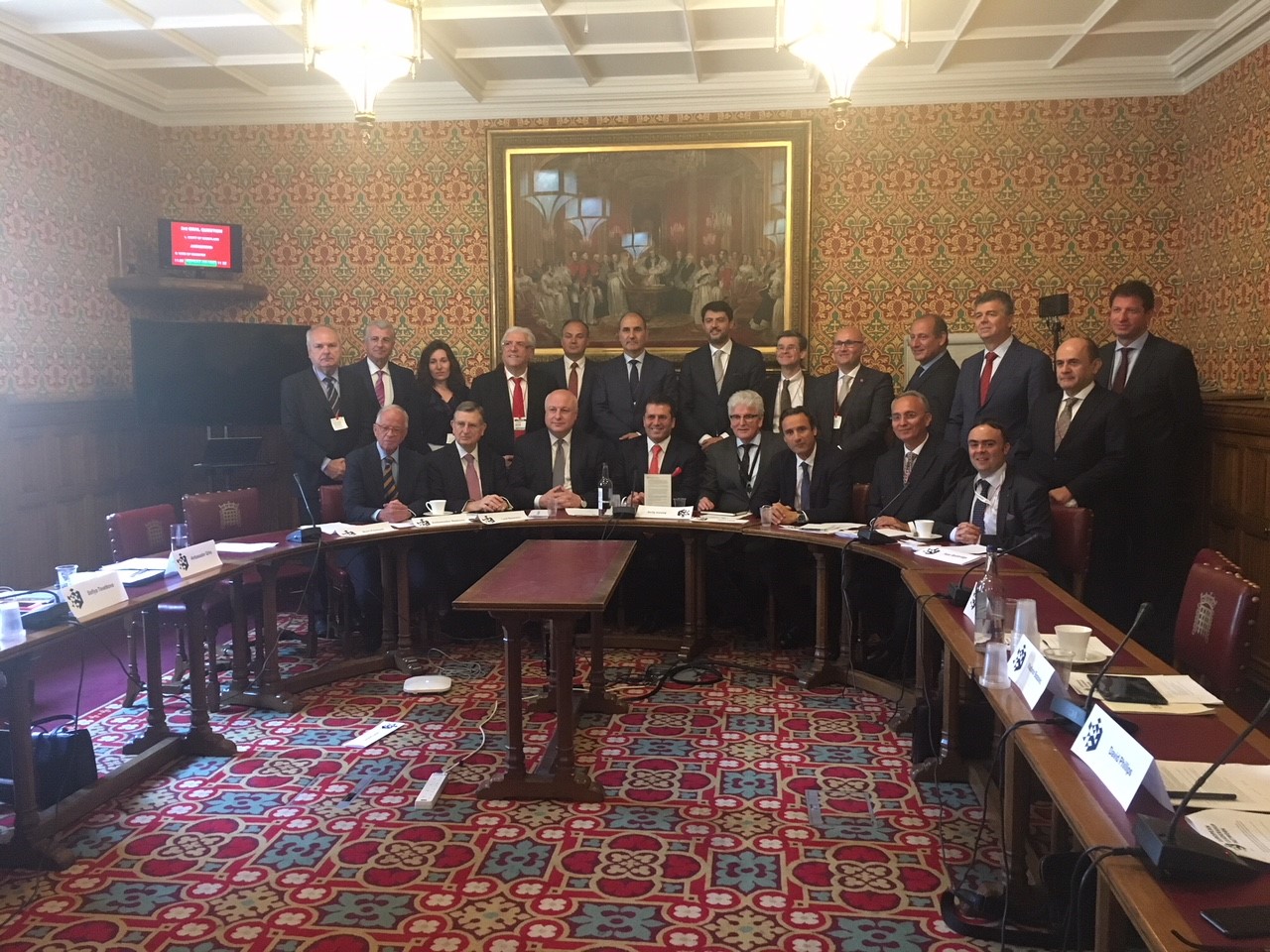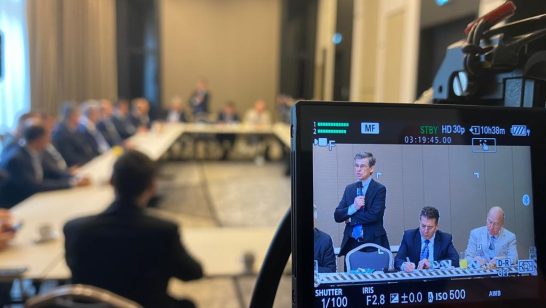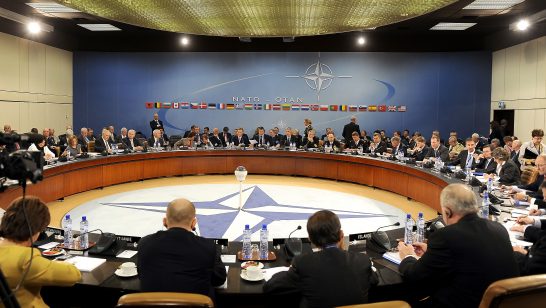
On 27-28th June 2018 the European Leadership Network (ELN) hosted a roundtable discussion in the British House of Lords under the co-chairmanship of ELN Chairman Lord Browne and ELN member and former Albanian Defence Minister, Fatmir Mediu.

The meeting brought together former and serving officials from most Balkan countries along with Ambassadors, and representatives of the OSCE Parliamentary Assembly and of the UK Parliament.[1] Participants considered the political, security and economic conditions in the Western Balkans on the eve of the 9-10 July London Summit and discussed practical recommendations to promote stability and democratic reform. They also addressed the role of the EU, including the UK, in supporting the countries of the region and developing a deeper partnership. Their deliberations were informed by, and built on, the recent House of Lords report ‘The UK and the Future of the Western Balkans’.[2]
Session One took stock of decisions and actions taken recently at the 17 May EU-Western Balkans Summit in Sofia and the progress made in the Berlin process. Further discussion points included:
- Is the present level of EU engagement enough to inject new energy into EU-Western Balkans relations? Will it make a positive difference to security in the region?
- Does ‘connectivity’ positively influence security? What further steps should international institutions and European states be taking?
- Progress on security, migration, geopolitical developments and good neighbourly relations?
Session Two focused on the steps that governments and international organisations could realistically now adopt. It sought to answer the following questions:
- How can growing EU-Western Balkans and intra-regional economic ties best serve security?
- What security steps are most urgent and which are most important? How can the latter best be advanced?
- Political co-operation: how can the London summit contribute to progress on regional disputes, strengthening democracy and gender equality, and overcoming the legacy of the 1990s?
This note summarises the main takeaways from meeting. It has been prepared on the authority of the ELN team and does not necessarily represent the views of the ELN or any of the participants.[3]
[1] The complete list of participants can be found below.
[2] The report can be accessed here: https://www.parliament.uk/business/committees/committees-a-z/lords-select/international-relations-committee/news-parliament-2017/balkans-report-publication/.
[3] The ELN would also like to thank Mr. Destani for his generous support, without which this event would not have been possible.
The opinions articulated above also do not necessarily reflect the position of the European Leadership Network or any of its members. The ELN’s aim is to encourage debates that will help develop Europe’s capacity to address pressing foreign, defence, and security challenges.



